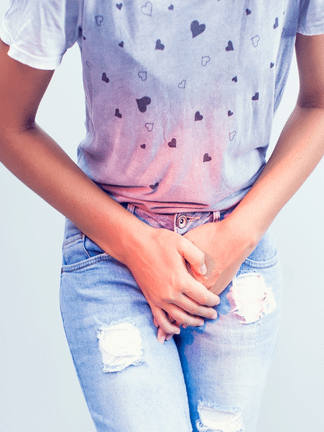An itchy vagina can be irritating and uncomfortable, and if this problem is affecting you at night, it could be interfering with your ability to sleep. So, what’s causing this discomfort, and why does the sensation seem more noticeable at night? Keep reading to find out, and to get tips on how to tackle the source of this irritation.
Why is my vagina itchy?
As you might expect, there are many different reasons why you can experience itching in your intimate area. For example, sometimes this problem is caused by chemicals or substances that come into contact with the skin and cause a reaction, such as scented toilet paper, washing powder, condoms or nylon underwear. Tight clothing can also trigger this reaction, as can certain soaps, bath or shower liquids.
A number of infections can make your vagina itch too. For instance, a yeast infection like Thrush can cause severe irritation and itching, as well as a white discharge and a stinging sensation when you wee or have sex. Sexually transmitted diseases including Gonorrhoea, Chlamydia and Trichomoniasis can also cause vaginal itching.
Changes to your hormone levels are another risk factor. If the amount of oestrogen in your body falls, this can cause the vaginal walls to become thin and dry, and this often leads to itchiness and irritation. This can happen as a result of the menopause, a hysterectomy or breastfeeding. It can also be caused by certain medications, including hormonal contraceptives, antidepressants and cancer treatments such as chemotherapy.
Vaginal itching is quite common, and in some cases making a simple change - such as switching to a different washing powder or changing the type of clothing you wear - can tackle the problem. However, if you think an infection or another health issue may be to blame, it’s important to speak to a doctor.
Why is vaginal itching worse at night?
Lots of people notice that this type of itching tends to feel more intense at night, so why exactly is this? One reason is simply that you’re likely to be more aware of the discomfort when you’re in bed because you have fewer distractions than during the day. Once you’re focused on the itching, it can be difficult to put it out of your mind. Also, when you lie down at night and start to relax, your senses may become heightened. A change in temperature or moisture levels at night can also make the itching worse.
Sex can exacerbate the symptoms too. Vaginal tissue is very sensitive, and the friction caused by sex can cause further irritation. It’s generally best to avoid intercourse until you know what’s causing the itching and you’ve taken steps to deal with the problem.

